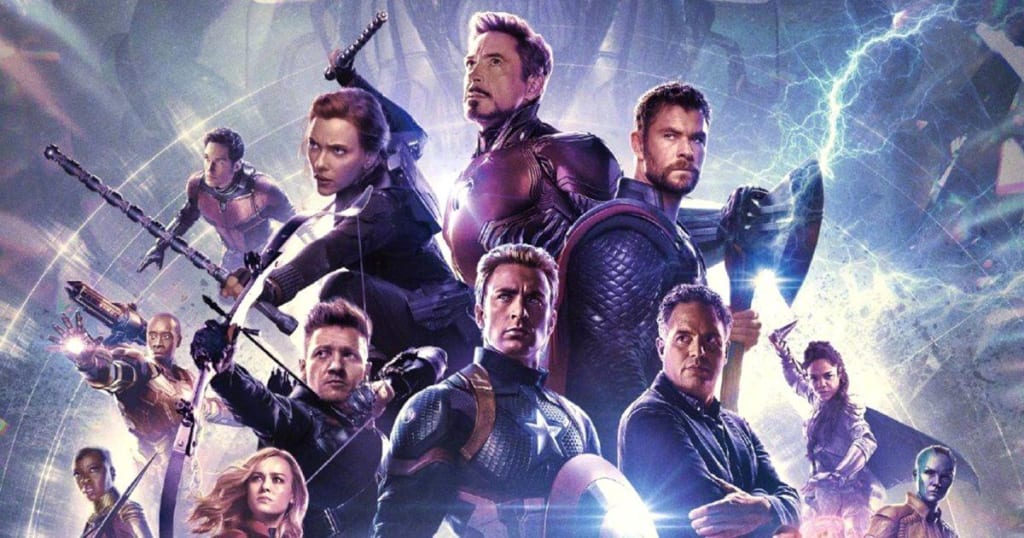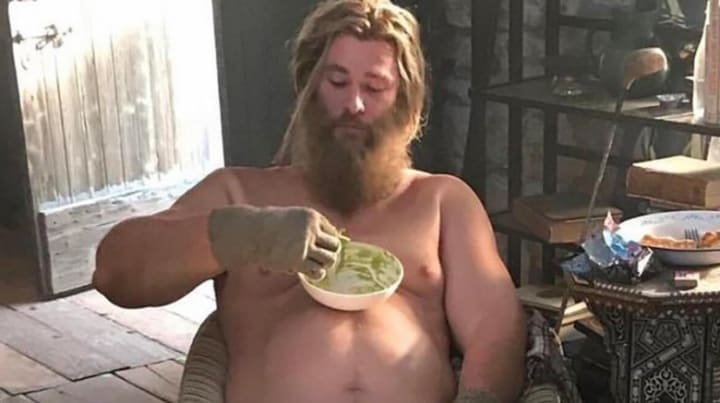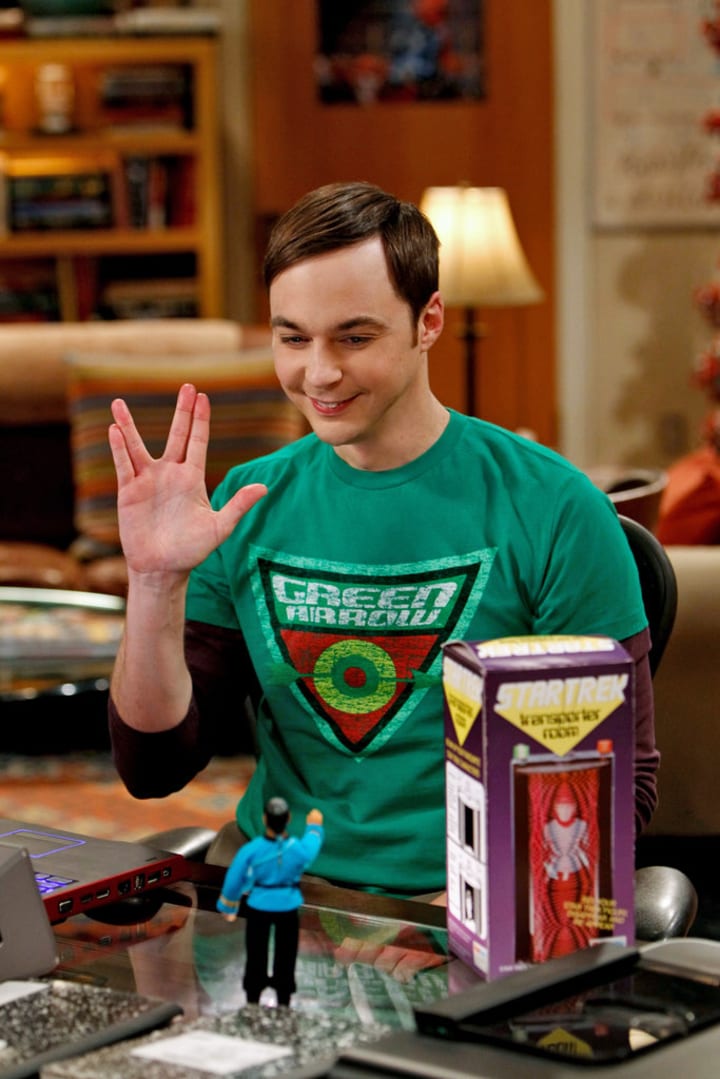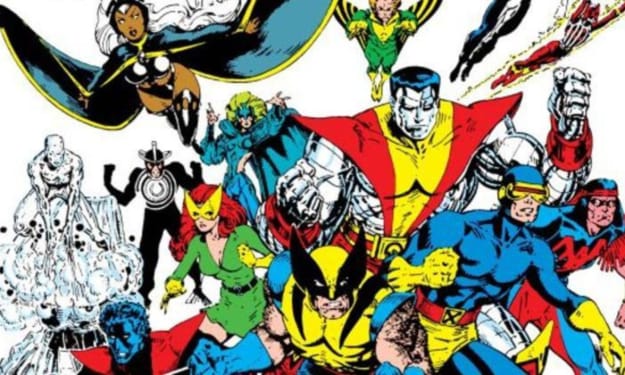Why Did Marvel Get Away With Mocking Mental Health in Avengers: Endgame?
Mental health is a major topic right now, and many run to speak up about how it needs addressing. But why did Marvel get a pass and were allowed to mock mental health in Avengers: Endgame?

The Marvel Cinematic Universe has been a major success by smashing through box-office records around the world, with Avengers: Endgame cultivating multiple storylines and converging them for one epic end of a saga. However, there is a major issue in society today that Marvel not only included in Avengers: Endgame, but they even made a joke of the entire problem, male depression. This brings me to the character that was used to make the jokes and the actor who I would assume either did not care what was being done or was unaware of him making a joke of a serious problem.

Chris Hemsworth has portrayed Thor through the Marvel Cinematic Universe, who had always been an extremely confident and brave warrior. But the character changed in Avengers: Endgame. Having been the one to ultimately fail at stopping Thanos from wiping out half of all life in the universe in Avengers: Infinity War, then being unable to undo the damage due to Thanos destroying the Infinity Stones resulted in Thor falling into a deep depression over the five year time jump in Avengers: Endgame.
Literally a shell of his former self, he had become overweight, alcoholic and a recluse. He even adopted a "do not care" policy and seemed resigned to his fate of solitude and alcoholism. That is until he is offered the chance to undo the damage made by Thanos. But even then, he does not return to the cheerful and brave Thor of the past. Instead he is made the object for audiences to laugh at in the film. From his drunken threat to "Noobmaster69" to being intoxicated and unconscious during an important meeting to breaking down in tears to his mother. He was essentially the clown of the movie due to his depression for audiences to laugh at.
Now some may ask how do we know Thor was depressed as it is never stated in the film. But it does not take a genius to figure this out. The National Institute of Mental Health have detailed lists of what signs a man going through depression may exhibit. These signs are as followed:
- Anger, irritability, or aggressiveness
- Feeling anxious, restless, or “on the edge”
- Loss of interest in work, family, or once-pleasurable activities
- Problems with sexual desire and performance
- Feeling sad, "empty," flat, or hopeless
- Not being able to concentrate or remember details
- Feeling very tired, not being able to sleep, or sleeping too much
- Overeating or not wanting to eat at all
- Thoughts of suicide or suicide attempts
- Physical aches or pains, headaches, cramps, or digestive problems
- Inability to meet the responsibilities of work, caring for family, or other important activities
- Engaging in high-risk activities
- A need for alcohol or drugs
- Withdrawing from family and friends or becoming isolated
Thor pretty much exhibited all of these symptoms during Endgame, so to say he was not in the middle of a personal battle with depression is simply ignorant. You may also ask why is this such a big deal? The simple answer is male suicide rates. Through depression men are much more likely to successfully commit suicide than a woman, with mental health as a major reason behind them seeking to end their life. So why did Marvel get away with mocking one of the biggest reasons men kill themselves? If this was done through a smaller profiled film or a television show social media would have exploded with rage.

The Big Bang Theory, a hugely successful television show, came under massive fire on social media for the implication that Sheldon was autistic. This was never confirmed by the shows creators, but Sheldon does clearly exhibit all the signs for an autistic diagnosis. Regardless fans found it completely unacceptable to mock and make jokes about someone with autism and the show took some major fire in the press due to fan outrage.
So it really does start to make you think why male depression was so massively ignored. We know Marvel purposely steered away from the domestic violence in the relationship between Hank Pym and Janet Van Dyne, is that because they knew no one would laugh at jokes about domestic violence? We can even assume in the upcoming Black Widow movie that if it does show Natasha in her youth as a ballerina and in the "Widow Program" that they will not have jokes about anorexia or eating disorders, as they are common in ballerina's during their youth to keep their weight down.
So Marvel know some subjects are best untouched, but for some reason found the opportunity to make fun of a serious issue and even more surprisingly, they got away with it. If anything Avengers: Endgame broke the global box office records, but it also showed more work needs to be done for awareness of male mental health issues. That or if you have a big enough film you can mock anything and get away with it.
Where do you stand with this question of mocking mental health? Did you even realise Marvel mocked an issue that kills thousands of men every year?
About the Creator
Craig Arnott
A guy who was raised on comic books, sci-fi and the love of superheroes, thanks for that dad. I am also studying Film Production and Cinematography giving new insight into the craft.
Follow me on Twitter: https://twitter.com/CraigArnott1984






Comments
There are no comments for this story
Be the first to respond and start the conversation.